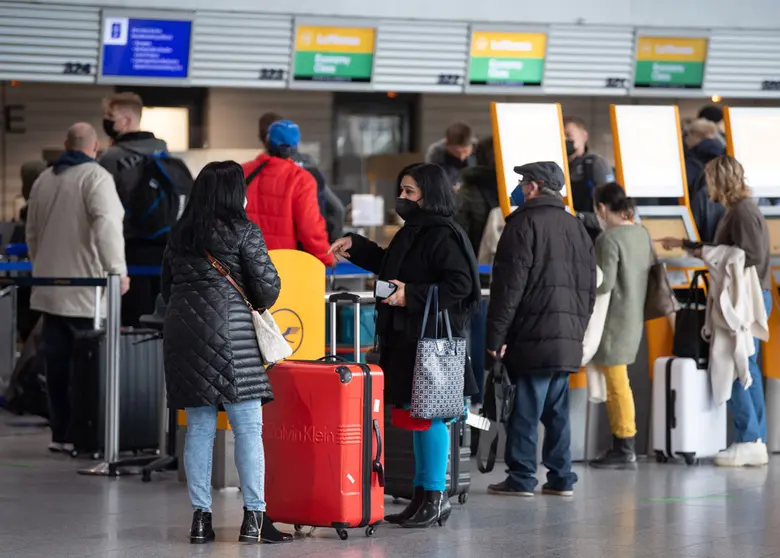The World Health Organization (WHO) reprimanded national governments on Tuesday for shutting down travel from southern Africa in response to the emergence of the Omicron coronavirus variant.
"Blanket travel bans will not prevent the international spread, and they place a heavy burden on lives and livelihoods," the UN health agency said in Geneva.
It also warned that such bans could discourage countries from reporting and sharing epidemiological and sequencing data in the global pandemic.
According to the WHO, at least 56 countries have responded to the latest variant of the Covid-19 with travel restrictions.
South Africa, which first detected the strain on November 24, has appealed to countries to lift their travel bans and argued that it is being punished for reporting the strain.
The WHO called for "an evidence-informed and risk-based approach when implementing travel measures," for example by screening prior to travel and/or upon arrival.
The WHO on Friday classified Omicron as a variant of concern and on Monday said the global risk from it was "very high."
At the United Nations on Tuesday, Secretary General Antonio Guterres said vaccinations provided the only solution to the crisis.
"The only way out of a global pandemic – and out of this unjust and immoral situation – is through a global vaccination plan," he said, calling for greater international cooperation to that end.
Poorer countries
The WHO wants to have 70% of the world's population vaccinated by mid-2022. Many developed countries have already reached that target, but poorer nations, for example in Africa, are lagging far behind.
India has for its part offered to supply Covid-19 vaccines, life-saving drugs and other equipment to African countries to help them deal with the Omicron outbreak.
The government was ready to supply Indian-made vaccines through the COVAX vaccine sharing initiative or bilaterally, India's Ministry of External Affairs said in a late night statement on Monday.
All orders from African countries through COVAX had been cleared and further orders would be considered on priority, the statement said.
India had so far supplied 25 million doses of vaccines to 41 countries in Africa, of which 1 million doses were given free of charge to 16 countries and another 16 million doses to 33 countries as part of the COVAX initiative.










